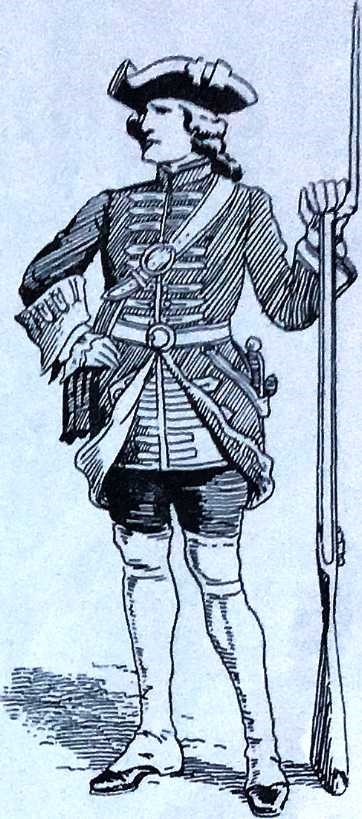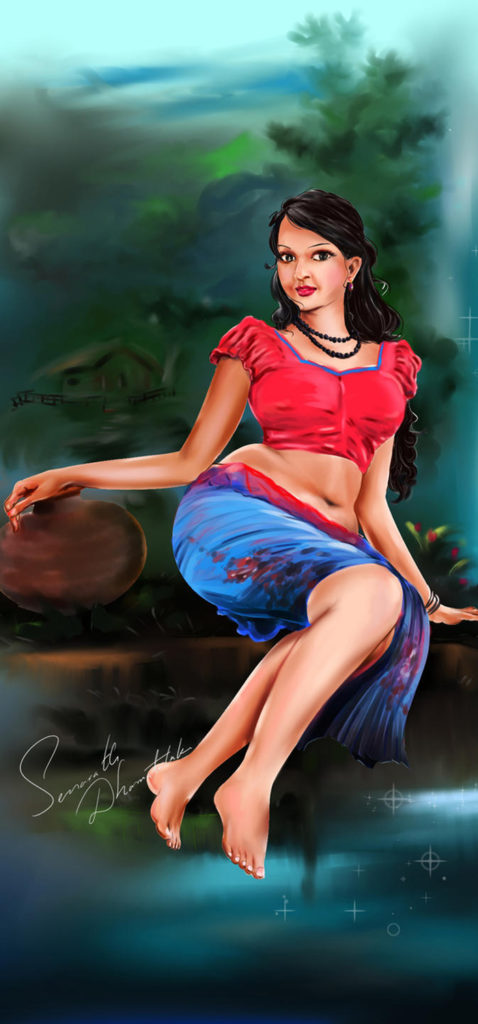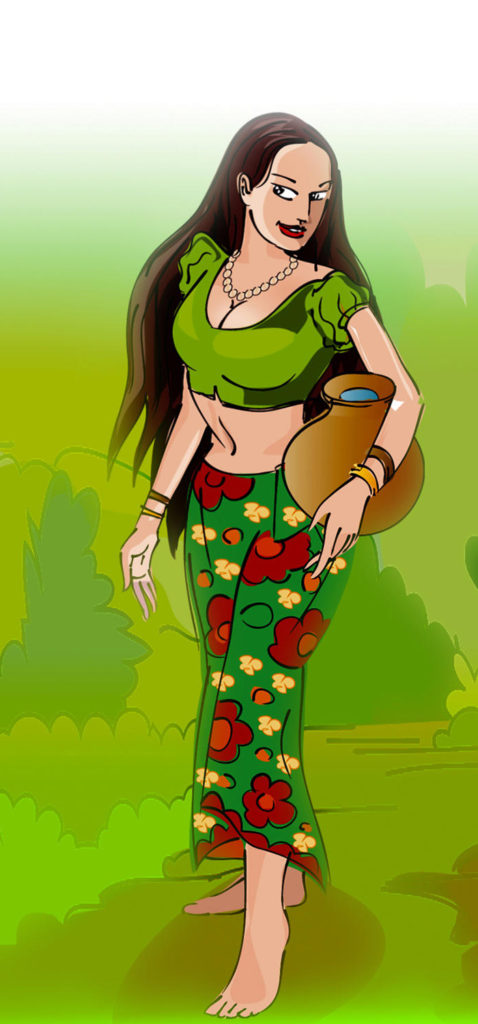Poems of J. P. De Fonseka I

“The most beautiful Oriental woman is the Sinhalese in Ceylon”
— Home Page Contributor in London Evening Paper.
THEY are belles of Asia, shining gold-bright sweethearts of the Sun,
Fair with the magic of the dawn beneath their Eastern sky;
Flame-coloured silks they Wear, all shot with rainbow hues and spun,
And golden bangles flash out light as they go passing by.
They are belles of Asia living in their verdant Phoenix-isle,
They come sometimes in bevies bright their temple shrines to greet;
As slow the shy-eyed maidens walk the russet roads awhile,
Their shimmering garments peacock’ hued flow winding to their feet.
They are belles of Asia, prime enchantment of those scenes of old,
When, banners borne before with beaten drum and conch-shell blown, Great lordly elephants caparison d With silks and gold,
Led where earth’s bluest blood held Court, King on the Makara Throne.
Ceylon Observer Annual 1936
Colombo Bound
She goeth along all in whiteness,
She glideth along all in spray,
In the sea-wind’s balm and brightness
And the white foam all the way.
She keepeth her glad graceful motion,
She is true to the rhythm and rhyme
Of the fall and the rise of the ocean
And the lilt of the music and time.
She chanteth her hymn of the morning,
Her voice with the voice of the deep;
She’s a grace on the waves all adorning,
Benediction she speaketh for sleep.
She winneth the kiss and the splendour,
There’s gold on her sun-caressed brow;
The moon and the stars loving tender,
They silver her poop and her prow.
She floateth in calmness discerning,
Like a high damoiselle is her mien;
But deep in her heart hides her yearning
That is human and poignant and keen.
But she moveth full free from all sadness,
And she fleeteth along in her spray,
For the sea-song sings beauty and gladness
And there’s home at the close of the day.
Times of Ceylon Christmas Number 1934
Dona Catharina
A Doom is writ on Kandy’s Throne,
A canker feeds on beauty’s rose;
An exiled orphan, homeless and lone,
Sorrow’s child, Dona Catharina, goes.
Hell’s powers are loosed to black offence,
Wilder beasts than rage in upland lairs,
But peace and lovely innocence,
Far Dona Catharina says her prayers
There’s murder rampant, treason done,
The few staunch ones are dust and wraith;
In her truce of God from rebels won,
Young Dona Catharina cons the Faith.
0 sacred is the Cross, it said,
All holy is its shame and loss.
And battles lost and heroes dead,
Brave Dona Catherina takes the Cross.
“Lady, what of your Royal grace?”,
The tempter speaks a whispered word.
“Regard the beauty of your face!”
But Dona Catharina has not heard.
“Nossa Senhora da Piedade,
Madre de Deos, ora por mi,
Rainba sagrada da Christandade “—
Pleads Dona Catharina’s litany.
The hour struck and homing nigh,
Brusque battle blasts Balana Pass;
The foemen crash and crumbling fly,
Hush, Dona Catharina hears the Mass.
Keen Western swords the Lusiads made,
To a Princess of the Eastern sea,
You flashed and flamed your homage paid!
Whence Dona Catharina rides triumphally.
A splendour takes the ancient hill,
Rare royal largesse strews the town;
In pomp and pageant prouder still
Queen Dona Catharina dons the Crown.
Uneasy lies the head. Dark doom
Of blood and battle reappears;
By rebel Consort, outlaw Groom,
Bride Dona Catharina weeps her tears.
Vain is the jarring jeremiad,
Vainer, those holocausts of hate;
No man but beast is Senevirad,
Dona Catharina is thrall to Fate.
A Calvary’s set on Kandy’s height,
With Martyrs on the Cross laid out;
The Faith is a blur of bleared light,
And Dona Catharina is lost in doubt.
Dark night of soul has dimmed the day,
Then looms at last a last lone tryst;
In her holy lonely Tenebrae
Dona Catharina confesses Christ.
List her cry, “0 Christo ajuda mi!”
Now doff her doleful diadem,
Bear a soul that’s past her agony,
Dona Catharina to her Requiem.
Ceylon Observer Annual 1936
Zoldaat by the Pen
 The Zoldaat by the pen was an apprentice clerk (writer) under the Dutch Government in Ceylon corresponding to a clerk in the Civil Service under the British. He was liable both to military at well as civil duty. The highest grade of service was Opperkoopmart (Senior Merchant). Lower were Oonderkoopmon (Junior Merchant) and Bock-houder (Book-keeper). Hoofd Administratcpr (shortened into Hoofd Commandeur in these verses) was the chief Revenue Officer. The commercial character of the Dutch Government is conveyed by the names of these posts and by the fact that its officers were allowed the right of private trade. The East India Company of Holland was governed by seventeen Directors, called the “Lords Seventeen.” Kantoor (office) has passed into the vernacular.
The Zoldaat by the pen was an apprentice clerk (writer) under the Dutch Government in Ceylon corresponding to a clerk in the Civil Service under the British. He was liable both to military at well as civil duty. The highest grade of service was Opperkoopmart (Senior Merchant). Lower were Oonderkoopmon (Junior Merchant) and Bock-houder (Book-keeper). Hoofd Administratcpr (shortened into Hoofd Commandeur in these verses) was the chief Revenue Officer. The commercial character of the Dutch Government is conveyed by the names of these posts and by the fact that its officers were allowed the right of private trade. The East India Company of Holland was governed by seventeen Directors, called the “Lords Seventeen.” Kantoor (office) has passed into the vernacular.
DEAR Dutchmen from the Zuyder Zee.
Who sought the Indies then,
I sing of all your company
Your Zoldaat by the pen.
Your Seventeen Lords are grave of mien
The wisest ones of men;
But a raw wild youth of seventeen
Is my Zoldaat by the pen.
Romance has lit his bright keen eyes,
Gold splendours flush his ken;
A star is born some day to rise,
O Zoldaat by the pen.
Apprentice masters trade full soon;
The craft of how and when
Pile stiver, schelling, ducatoon,
Quick, Zoldaat by the pen.
A time to fight, a time to write,
The pay at guilders ten ;
And a time to keep the books aright
Mind, Zoldaat by the pen.
How Opperkoopmen line their nest,
Learn, Nederlaander wren;
How Oonderkoopmen pass their test,
Note, Zoldaat by the pen.
So take good chance and thank the Lord,
And underwrite again;
The pen is mightier than the sword,
Sure, Zoldaat by the pen.
The Boekhouder’s a tired old beast,
Kantoor, a drudge’s den;
“Friend, go up higher”—the word comes East.
Mount, Zoldaat by the pen.
There’s a corner on the Zeilan mart,
Reserve of handymen;
The bulls and bears will play their part,
Boom, Zoldaat by the pen.
On nut and spice, and mine and field,
White pearl and red cayenne,
A five per cent, is lawful yield,
Toll, Zoldaat by the pen.
A star takes zenith by and by;
No umble citizen,
But Hoofd Commandeur poised on high
Is my Zoldaat by the pen.
Hollaandsche Gouverneur, all hail !
God be with you, amen !
Now pen the memoirs, write the tale
Great Zoldaat by the pen.
Times of Ceylon Christmas Number 1934
The Crib
Behold the lowly palm-thatch’d stall,
And roof astreak with gold,
And oxen come from Point de Galle
And kneel as those of old.
With stuffs they make in Trincomalie
The child lies swathed about;
And Jaffna that is northerly
The midnight Mass sings out.
And seventy thousand men who live
Negombo way’ mid breeze,
They hear the chant and rising view
The lode-star through their trees.
And in the city of Ninety Kings,
Now ruined and lone and wild,
Some eyes like Simeon’s leave all things
To gaze upon the Child,
And bearing gifts the Kings ride down,
Three Kings of Kandy’s line;
With gold and gems they seek the town
Quiet ‘neath its starry sign.
Scions of the Royal Sun and Moon,
Sprung from the Epic Age,
Would rather beg an humble boon
Than speak as King and Sage.
With them a courtly chivalry
Of Prince and Warrior Kin;
Uparaj, Brahman, Pattabendi,
Don, Dona in palanquin.
So, too, high Servitors of State,
Adigar and Nilame press;
Dissawe, Chieftain, Magistrate,
Kneel to a Child’s caress.
O Babe of God, divinely wise,
Bless man and bird and beast.
And fruit and grain, and seed and spice;
The greatest things and least.
And bless and smile again as when,
O Heavenly Innocence,
They brought their gold, those Orient men,
And myrrh and frankincense.
The blessing speeds from home to home,
From coast to korale town ;
From Pedro’s point to Dondra’s foam
God’s Peace is wafted down.
Lo, past that high Epiphany,
The Babe’s asleep in crib—
Hush, Lanka or Taprobane,
Ceilao or Serendib.
Times of Ceylon Christmas Number 1934
Village Belle

O BEAUTY of the village world,
You go your beauty all unfurl’d;
The world and you both know it well,
How wondrous fine you are, they tell.
Your long black hair in one great knot,
A great jewell’d pin stuck through the lot,
And pearl eardrops on either ear,
A showy necklace shining clear,
A studded brooch upon your breast
A mirror’s aid had fixed there best,
And rings and rings on fingers gay
With stones on them as red as day,
A jacket white well edg’d with lace,
And cloth flamboyant shooting rays,
Decked out like Eastern temple bright
With festal finery all bedight.
On full-moon days to temple too
You fare to make the offering due
With flowers and tender areca palm
And balsams sweet and odourous balm
You leave a perfume floating round
Where the Buddha squats in thought profound;
But a fragrance follows you e’er yet
Where’er your unshod feet are set.
The World and you both know it so;
And one spruce youth, a village beau,
Is very proud, and very proud,
And at your feet his spirit’s bow’d.
For world-old things have filled his heart,
The things that prosper Without art.
You’ve shot a hundred glances there,
And smiled askance at him and fair,
The old, old tale and the old, old style;
And you are worth the fellow’s while,
Dark beauty of the village world,
Your dusky beauty all unfurl’d.
Observer Annual 1937
